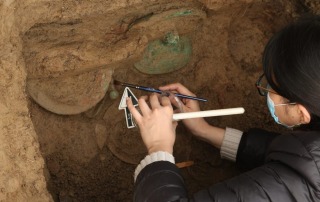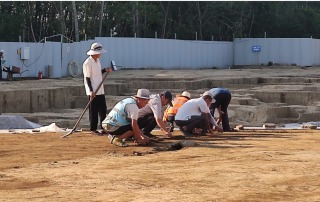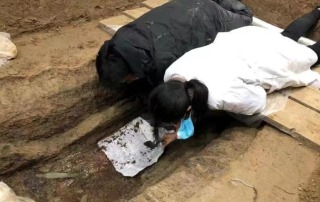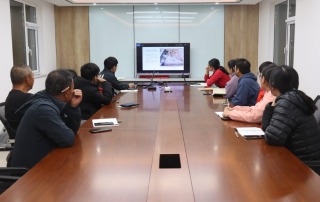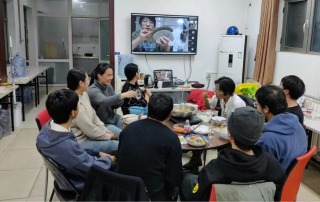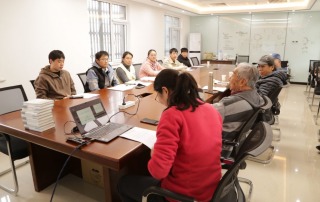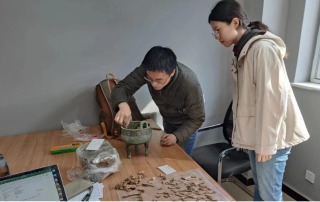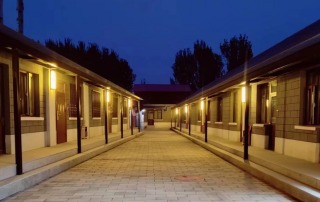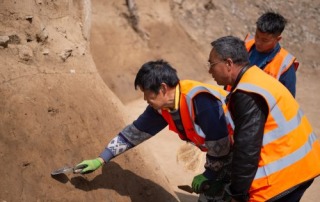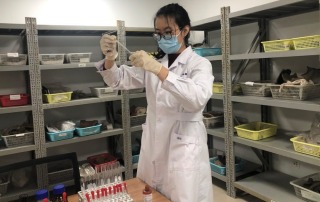Project Description
Overview
The Liulihe site in Beijing is a Chinese Bronze Age city dating from about 2,800-3,000 years ago. Remains at the site include rammed-earth city walls, moats, large rammed-earth buildings (palaces or ancestral temples), small above-ground buildings, crypts and semi-crypts, ceremonial relics, and burials of various grades.
The site has been known since 1945, and excavation and research work has been carried out since 2019. The main research objectives of this phase of the Liulihe site are focused on early urban planning and layout, architectural forms and assemblage relationships of major buildings, and archaeological research on burials, with the types of excavations including dwelling sites and burials.
Students will mainly participate in the excavation, drawing, sampling and recording of tombs, as well as archaeological survey, exploration, recording, and data collation and uploading in other parts of the broader urban project. Teachers will live with students to facilitate communication. During the internship, students will be involved in excavation work under the guidance of their teachers and can ask them questions at any time. Teachers encourage and support students to actively express their views and opinions, and to make rational suggestions. The program hopes to establish a close relationship between students and research work, and to improve their research ability and interest in participating in research. Outside of work and study, we will lead a visit to the World Heritage Site of the Zhoukoudian Homo erectus site and participate in the Great Wall conservation and restoration survey. Participants may be involved in public outreach or science popularization activities.
| Course Details | |
|---|---|
| Course Dates | June 9 – July 6, 2024 |
| Course Type | Field Archaeology |
| Instructors | Guo Jingning |
| Credits* | 7 semester (10 quarter) |
| Apply By | April 1 |
| Fees Due By | Summer 1 (May 1) |
| Program Fees | |
|---|---|
| Tuition | $4,050 |
| Transcript Fee* | $300 |
| Health & Evacuation Insurance | $150 |
| Room & Board | $900 |
| TOTAL: | $5,400 |
Applications accepted on a rolling basis until program fills or final deadline above.
Instructors
The directors welcome emails and inquiries about the research elements of this project. More general information (tuition, health insurance, and payment schedule) can be found under the ‘Students’ tab above. Any further questions may be addressed to IFR staff. Additional details about research, course schedule, travel, accommodation, and safety can be found on the syllabus. Contacting the directors or the IFR office is encouraged and appreciated. It may help you determine if this field school is a good fit for you.
Testimonials
This is a new IFR field school. No student testimonials are available at this time.
Payment & Student Fees
Application Fee: There is a $45 fee to submit an online application.
Deposit Payment: A nonrefundable $500 deposit is due within 3 weeks of program acceptance in order to secure your place. The remainder of your program fees are due by the deadline indicated under “Course Details”.
*Transcript Fee & Academic Credit Opt Out: If you wish to participate in an IFR field school without earning academic credits, you will not be charged a transcript fee.
For more information about payment, fees, and policies, please see details under our Payment & Finances and Withdrawal and Cancellation Policy pages.
Accommodations
Our workstation is located in Dongjialin Village, Liulihe, Fangshan District, next to the Beijing Archaeological Site Museum (Liulihe Site). The workstation is divided into a living area and a working area, and the working area has working rooms and a temporary warehouse. Students will live within walking distance of the work area. The dormitory in the living area contains double rooms with each person having their own desk and lamp, and there is wireless internet and air conditioning in the room. There are two separate shower rooms in the workstation for all genders, and male and female bathrooms. Washing machines with drying function are available. Students are free to organize when and in what order they use the lavatory facilities and showers, and the directors will be flexible in allocating rooms.
We have canteens in our workstations, buffet style, serving three meals a day a variety of Chinese cuisine. Students can choose their own food, but special dietary needs are not catered for, e.g. no halal food is available. The canteen is shared with the staff of the Museum of Archaeological Sites. The living area also has a small kitchen to cook your own meals, which has a microwave and an induction cooker. Water is available in the canteen and working rooms.
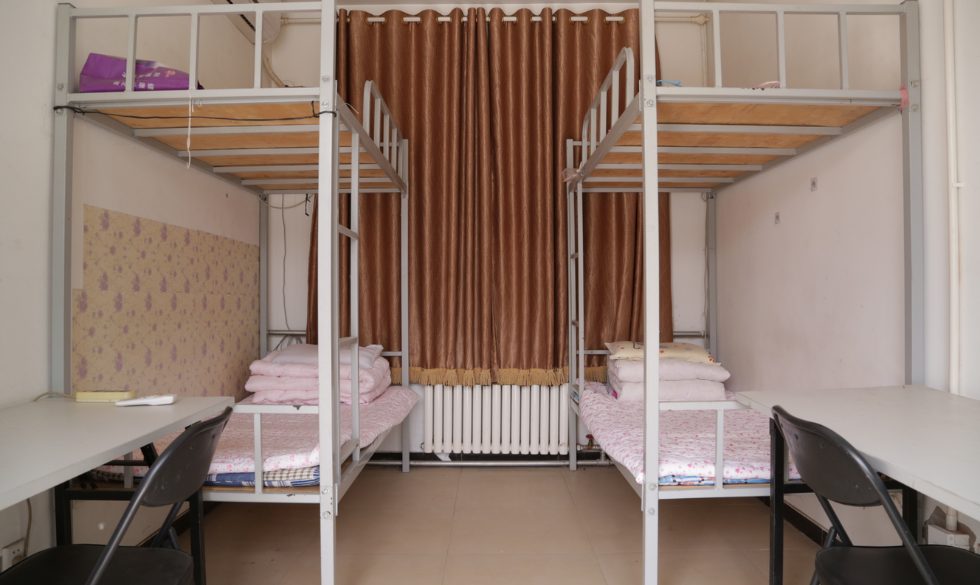
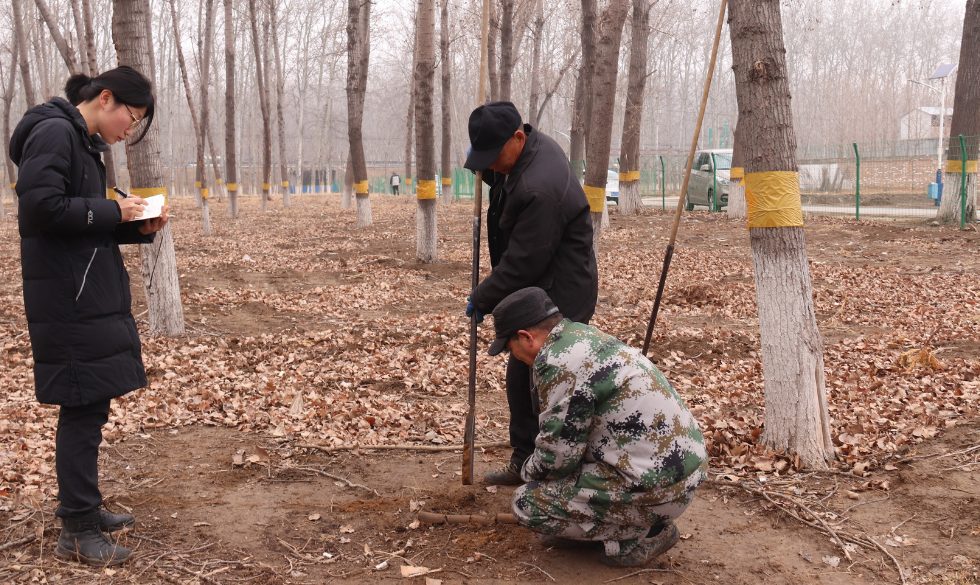
Travel Info
Natural disasters, political changes, weather conditions and various other factors may force the cancellation or alteration of a field school. IFR recommends students only purchase airline tickets that are fully refundable and consider travel insurance in case a program or travel plans must change for any reason.
General information for this program is below, but keep in mind we will discuss any updated travel information and regulations during the required program orientation, which could affect travel plans.
The staff will pick up students by car at the airports to which they arrive. We suggest students arrive at Beijing Daxing International Airport on Sun. June 9, 2024.
If you missed your connection or your flight is delayed, please call, text or email the field school director immediately. A local emergency mobile phone number will be provided to all enrolled students.
The two trips by car to the Zhoukou Dian site and the Great Wall will occur during the field school. The field site is not far from the field camp; students could walk or ride bicycles to get to/from the field site within 2 km. The laboratory is located at the camp. If an emergency occurs, a vehicle is available to transport students.
VISA REQUIREMENTS
Non-Chinese participants are required to secure a tourist visa to China prior to arrival. You should apply for the visa several months ahead of time. Please visit the visa page of Chinese Embassy in your own country for more information and required paper work.
Please see the syllabus for detailed instructions for the visa application.
Student Safety
The IFR primary concern is with education. Traveling and conducting field research involve risk. Students interested in participating in IFR programs must weigh whether the potential risk is worth the value of education provided. While risk is inherent in everything we do, we do not take risk lightly. The IFR engages in intensive review of each field school location prior to approval. Once a program is accepted, the IFR reviews each program annually to make sure it complies with all our standards and policies, including student safety.
Students attending IFR international programs are covered by a comprehensive Health Insurance policy that includes physical illness or injury, mental or chronic conditions. No deductible and 100% of costs are covered up to $250,000. In addition, we provide Political and Natural Disaster Evacuation policy, which allow us to remove students from field school location if local conditions change. Our field school directors are scholars that know field school locations and cultures well and are plugged in into local communities and state institution structures.
Students attending IFR domestic programs (within the US) must have their own health insurance and provide proof upon enrollment. IFR field school directors are familiar with local authorities and if in need of evacuation, local emergency services and/or law enforcement will be notified and activated.
The IFR has strong, explicit and robust policy towards discrimination and harassment in the field. If students feel they cannot discuss personal safety issues with field school staff, the IFR operates an emergency hotline where students may contact IFR personnel directly.
Call (877-839-4374) or email (info@ifrglobal.org) if you have questions about the safety of any particular program.


